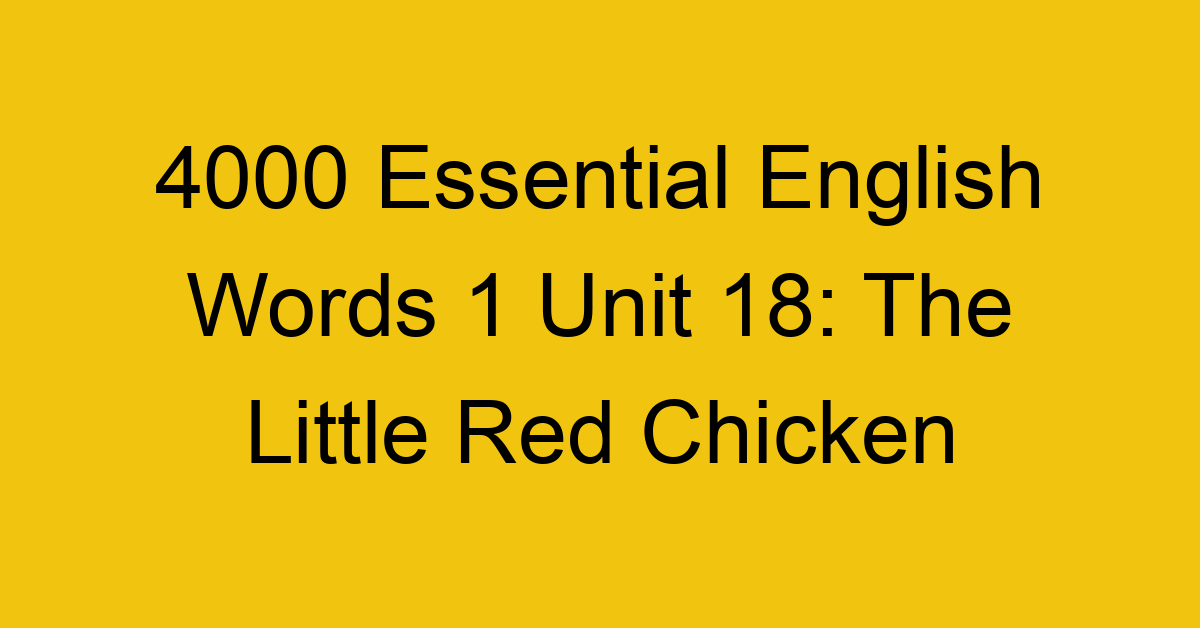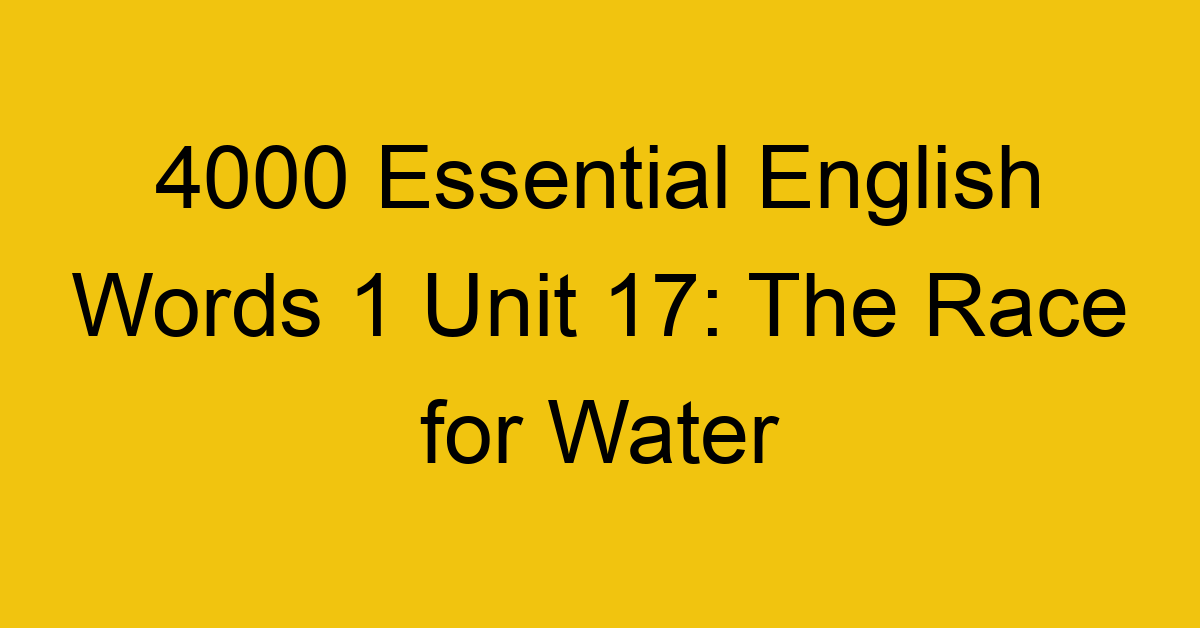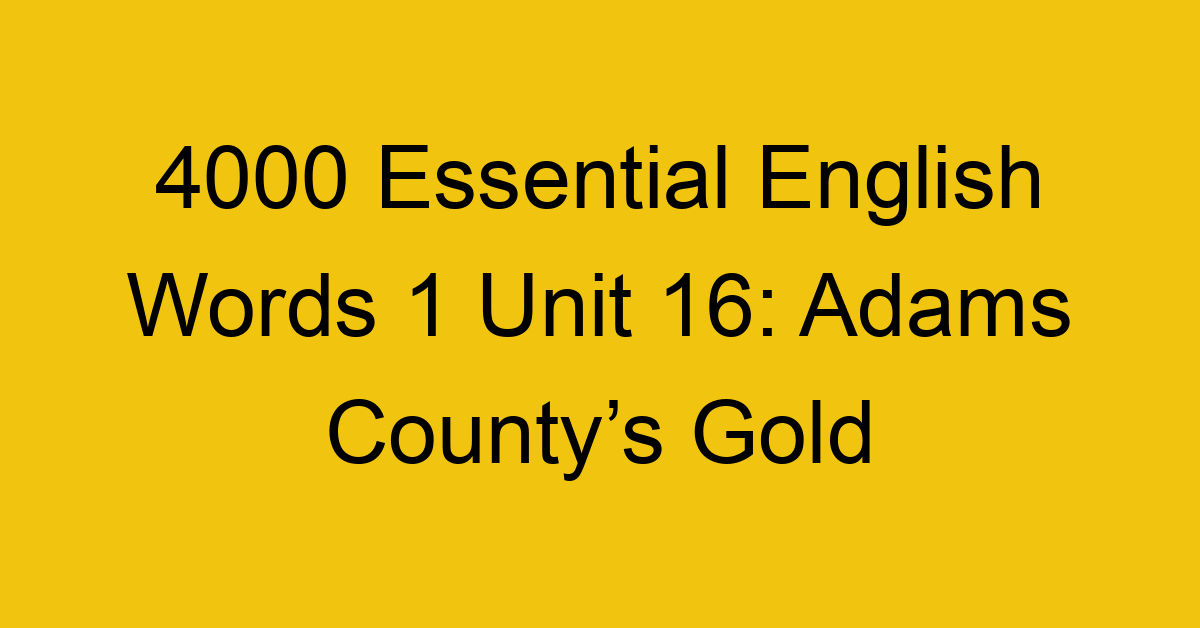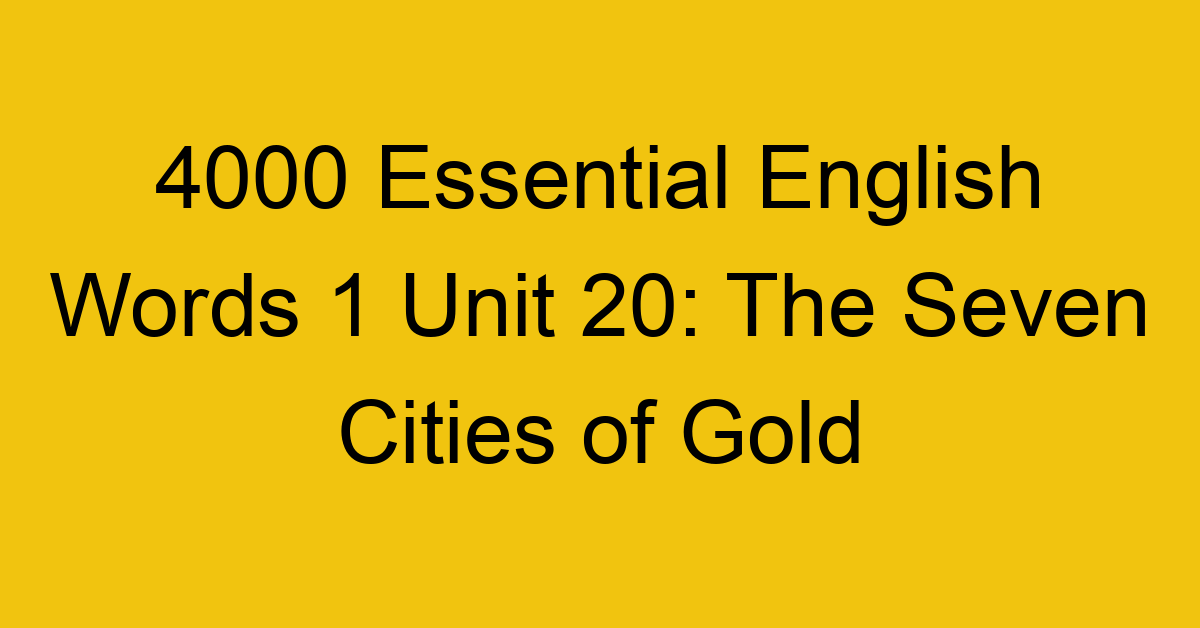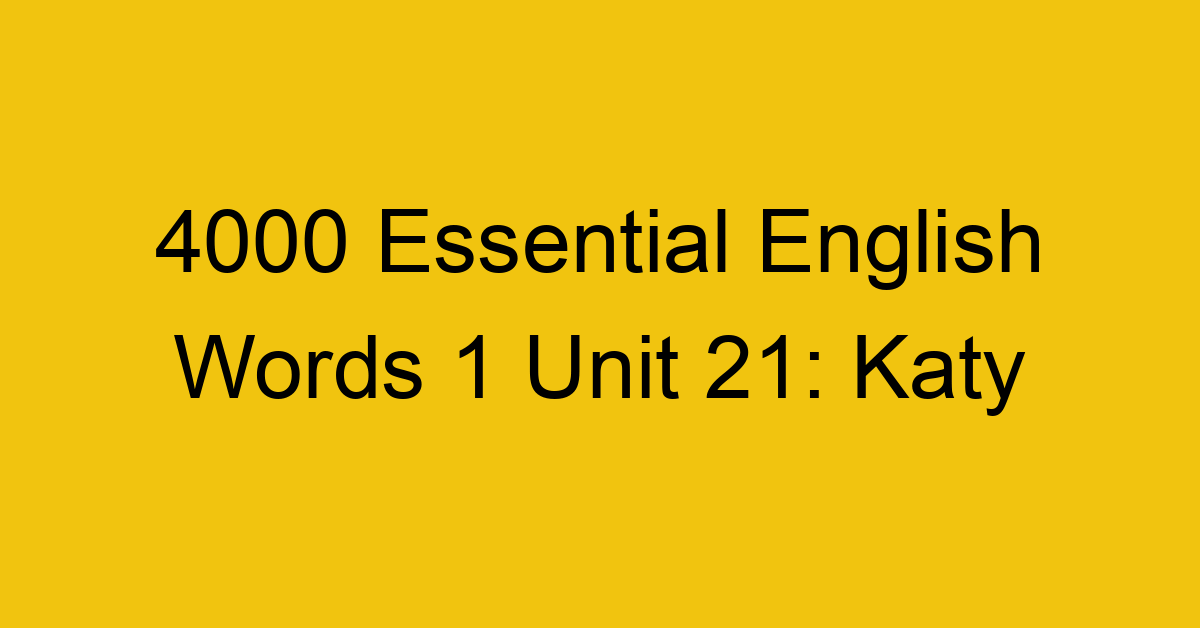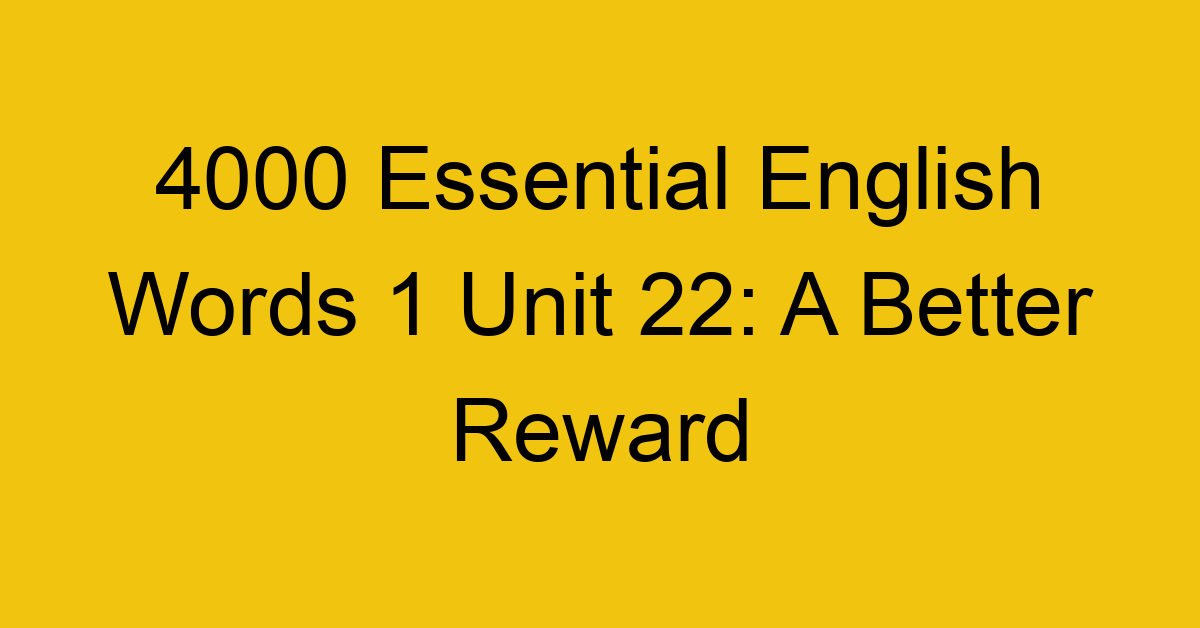4000 Essential English Words 1 Unit 19: Shipwrecked
Word List
- alive [əˈlʌɪv] adj.
If someone or something is alive, they are not dead.
→ My grandparents are still alive even though they are over 90.
- bone [bəʊn] n.
A bone is a hard part of the body.
→ I brought home a nice bone for my dog.
- bother [ˈbɒðə] v.
To bother is to make the effort to do something.
→ No one bothered to wash the dishes today.
- captain [ˈkaptɪn] n.
A captain is the person who leads a ship or airplane.
→ The captain sailed his ship to Australia.
- conclusion [kənˈkluːʒ(ə)n] n.
The conclusion of something is the final part of it.
→ At the conclusion of the race, the spectators cheered for the winner.
- doubt [daʊt] n.
Doubt is a feeling of not being sure.
→ I have doubt that the story is true.
- explore [ɪkˈsplɔː] v.
To explore is to look for new places.
→ He wants to explore the world and see new things.
- foreign [ˈfɒrɪn] adj.
If something is foreign, it is from a different country.
→ Mexican food is a popular foreign food.
- glad [ɡlæd] adj.
If you are glad, you are happy.
→ I am glad you came to my party.
- however [haʊˈɛvə] adv.
However means despite or not being influenced by something.
→ She is a great cook. However, she never had professional lessons.
- injustice [ɪnˈdʒʌstɪs] n.
Injustice is a lack of fairness or justice.
→ Putting an innocent person in jail is an act of injustice.
- international [ɪntəˈnaʃ(ə)n(ə)l] adj.
If something is international, it involves more than one country.
→ The United Nations is a powerful international organization.
- lawyer [ˈlɔːjə] n.
A lawyer works with the law and represents people in court.
→ The lawyer left the courthouse after the judge made her decision.
- mention [ˈmɛnʃ(ə)n] v.
To mention something is to talk about it.
→ The doctors mentioned the problems that the patient was having.
- policy [ˈpɒlɪsi] n.
A policy is a rule.
→ He told us that his policy was to put customers first.
- social [ˈsəʊʃ(ə)l] adj.
If something is social, it is about many people in a community.
→ People should come together and fix the world’s social problems.
- speech [spiːtʃ] n.
A speech is something said to a group of people.
→ She gave a speech to the class.
- staff [stɑːf] n.
A staff is a group of people working together in a company.
→ My dad has a staff of four people to help him at the office.
- toward [təˈwɔːd] prep.
If you go toward something, you go closer to it.
→ Santa walked toward my house with a special tree.
- wood [wʊd] n.
Wood is the thing that trees are made of.
→ I put the pieces of wood in a pile.

